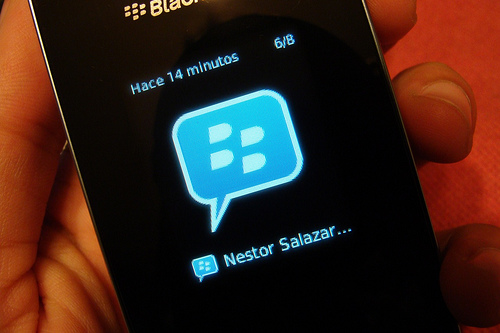Amid RIM’s seemingly-unending struggles, the company has seen a light: BlackBerry Messenger.
RIM says that use of its proprietary instant message service has spiked from 5.3 to 55 millions users over the past three years, even as the Blackberry’s user base and market share have been eroded by the likes of the iPhone and Android, as The Wall Street Journal reports.
The continued success of BBM gave former RIM co-CEO Jim Balsillie an idea: RIM could capitalize on its popularity by licensing the software to competitors.
June 5th: The AI Audit in NYC
Join us next week in NYC to engage with top executive leaders, delving into strategies for auditing AI models to ensure fairness, optimal performance, and ethical compliance across diverse organizations. Secure your attendance for this exclusive invite-only event.
But the problems with this plan were immediately clear. Letting third-party companies use the service would undoubtedly increase BBM usage numbers, but it would also remove one of the BlackBerry’s most key differentiators.
That argument is a large part of why RIM’s new CEO Thorsten Heins axed the plan. RIM won’t be doing any licensing deals under his watch.
But where does that leave BBM? Solely in the hands of BlackBerry 10, it’s next-generation OS set for release later this year. But with competition from Apple’s iMessage and a bevy of other iOS and Android messaging apps at all-time high, RIM is going to have a hard time attracting users back to BBM no matter what operating system its running on.

